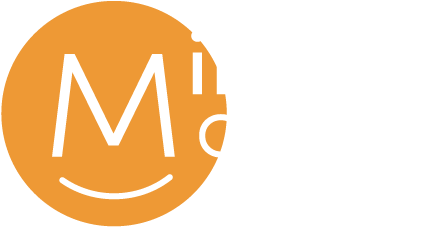
The Big Benefits of Having your Own Financial Plan
No Asset Minimums
Available to everyone with an internet connection.
Total Privacy
You don’t have to share anything with us or show us anything.
Dispel the Illusions
Wall Street and the financial media peddle illusions of complexity that create fear and anxiety around money. We help you IGNORE them.
Understand Your Personal Happiness
Philosophers, monks, and academics have been exploring happiness for thousands of years. We break it down so you cultivate your best life.
Comprehensive Plan
Start with your values and goals and create a lifetime step-by-step guide to budgeting, saving, debt management, investing, and retirement planning.
Save $$$Thousands$$$
Lifetime Access – Come back every year and run a new scenario.
Trust
We don’t sell any products or manage any assets. We want to help you do it right yourself.
Financial Literacy
Every student of the DIY Financial Plan course also receives FREE lifetime access to our complete 18 module financial education course.
Why DIY?
Doing it yourself, especially in personal finance, can save you tens or hundreds of thousands of dollars over a lifetime.
Financial planning and investing are not difficult. You can get smart about money and personal finance, even if you have never invested before. There are a couple complex issues, but we make them simple by breaking them into short, easy steps.
Many people NEVER have access to professional financial planning support and many others can’t afford great advice (which can be incredibly expensive), but there is just too much financial noise out there and creating a basic financial plan can help anyone filter that noise.
In a world where there is no practical financial education offered in our primary or secondary schools, we all become subject to the sales tactics of banks and brokers. A little knowledge and planning goes a long way.
Why Mindful Money?
Mindful Money was created by Jonathan DeYoe. Jonathan is a Lutheran seminarian turned Buddhist academic, turned financial advisor. His 25-year career has been devoted to financial education and getting advice to people locked out of traditional advice networks. You can read more about him HERE and HERE.
Other services charge twice as much and focus on math skills and statistics, we will cover those and recognize their importance, but we will focus on the psychology and the levers that are currently leading you to make the wrong decisions.
Knowing the right things to do is very important, but nowhere near as important as doing them. I would argue that you probably know some of the right things (save more, invest, don’t carry debt, etc.) and you just don’t know which to do first, which to do now, or you find it hard to DO them at all… THAT is what we have to figure out.
We have to create a plan and then close The GAP between knowing and doing the right things. If this makes sense, then you are in the right place.
Your 4 Detailed Modules Include:
1.1 Welcome
1.2 Understanding The Illusion Factory
1.3 Illusion 1: We Can Go with the Flow and Still Achieve Happiness
1.4 Illusion 2: We Can Get There from Here without a Financial Plan
1.5 Illusion 3: Money Gurus Have a “Secret Sauce”
1.6 Illusion 4: We Can Get Rich Quick if We Spot the Opportunities
1.7 Illusion 5: Volatility = Risk
1.8 Illusion 6: Market Timing & Stock Selection Are the Keys to Success
1.9 Illusion 7: Investing = Speculating or Speculating = Investing
1.10 Illusion 8: There’s Plenty of Time to Plan for Retirement
2.1 Happiness is Not a Mystery
2.2 Happiness Pillar 1: Health
2.3 Happiness Pillar 2: Engagement
2.4 Happiness Pillar 3: Relationships
2.5 Happiness Pillar 4: Meaning
2.6 Happiness Pillar 5: Accountability
2.7 Happiness Pillar 6: Generosity
2.8 Happiness Pillar 7: Optimism
2.9 Happiness Pillar 8: Gratitude
3.1 Human Out, Human In
3.2 Step 1: Develop Your Vision
3.3 Guided Practice: Developing Your Vision in 5 Steps
3.4 Step 2: Why You Should Start the Saving Habit Now
3.5 So How Much Should I Save?
3.6 Case Study: How to Set up Your Balance Sheet
3.7 Step 3: Build an Emergency Fund
3.8 Case Study: Setting Up the Emergency Fund: How David Did It, How Sarah Did It
3.9 Step 4: Eliminate High-Interest Debt
3.10 Case Study: How Sarah Eliminated Her High-Interest Debt
3.11 Step 5: Begin Investing for Retirement
3.12 Case Study: How Sarah and David Invested for Retirement
3.13 Step 6, 7, and 8: How to Climb to the Next Level
3.14 The Tax Man Cometh
3.15 Three Simple Investment Practices
4.1 How do I incorporate my passion into my financial plan?
4.2 Divide and Conquer: How to divide your savings between kids, lifestyle and the future
4.3 What happens when it doesn’t go the way I plan?
4.4 Conclusion: A Wider View
Bonus Material
B1. If You Seek Advice, Know What Advice You Seek
B2. The Thing About Bear Markets
B3. Mindful Money Financial Education – 18 topic-specific modules
Don’t take our word for it, check out these student comments...
“Jonathan’s closing reminder was that Financial Planning is supposed to free up my/our personal time and energy to be able to attend to our human relationships and quality living – to free us from fear and confusion caused by the financial - economic - market ups and downs we can't comprehend anyway."
N.L.
"No one can predict or control markets. Financial Planning and the simple investing rules Jonathan teaches allow us to ignore market movements and focus on what we can do. We’ve always spent too much energy on things we can’t control anyway. Better to have a plan of action than constantly reacting to the world around us.”
N.K.
"Financial Planning isn't something I'm good at... Saving money, isn't my forte! The whole thing is daunting and overwhelming to me! I've been listening to Jonathan and watching his videos for 10 years now and his honesty, sincerity, and transparency in what he does is consistent and unwavering. With all the ugly financial news and human distress, Jonathan is a breath of fresh air."
T.L.
"Jonathan consistently talks about what is good for investors. His whole schtick is about learning the right behaviors – starting with planning – and then doing them. He teaches that we shouldn't get overly excited or overly concerned about this or that headline and this constant reminder, alongside his reminders to focus on our plan helps me sleep at night."
T.C.
"Jonathan DeYoe brings such integrity and command to the process of financial education. I keep meeting people at his events and presentations that say they feel like they're in the right place almost instantly. When I think about Jonathan, the word "trust" immediately comes to mind... and he's only fortified that opinion during the seven years I've been watching him work. He really cares about the people he speaks to and he listens, hears and follows up."
E.D.
"My wife and I trust Jonathan as our primary source of personal financial and investment information and education. We love the way he supports and empowers us to do much of it ourselves. We have limited time or expertise, and Jonathan's availability to coach us is always surprising. We are happy with the results of our "Visioning" process and believe it truly captures our Life-Worth-Living.”
J.M.

Meet Your Instructor
Jonathan K. DeYoe is the bestselling author of Mindful Investing: Right Focus, Better Outcome, Greater Well-Being and Mindful Money: Simple Practices for Reaching Your Financial Goals and Increasing Your Happiness Dividend and has led a Bay Area wealth management office focused on client education for over 2 decades. As a Lutheran seminarian turned Buddhist academic turned financial advisor, Jonathan is always bridging money and life. He believes that anyone can experience a vibrant, financially successful life by developing a few important beliefs and following a few simple practices. He does his best work teaching these beliefs and practices in spaces where love and money overlap.

